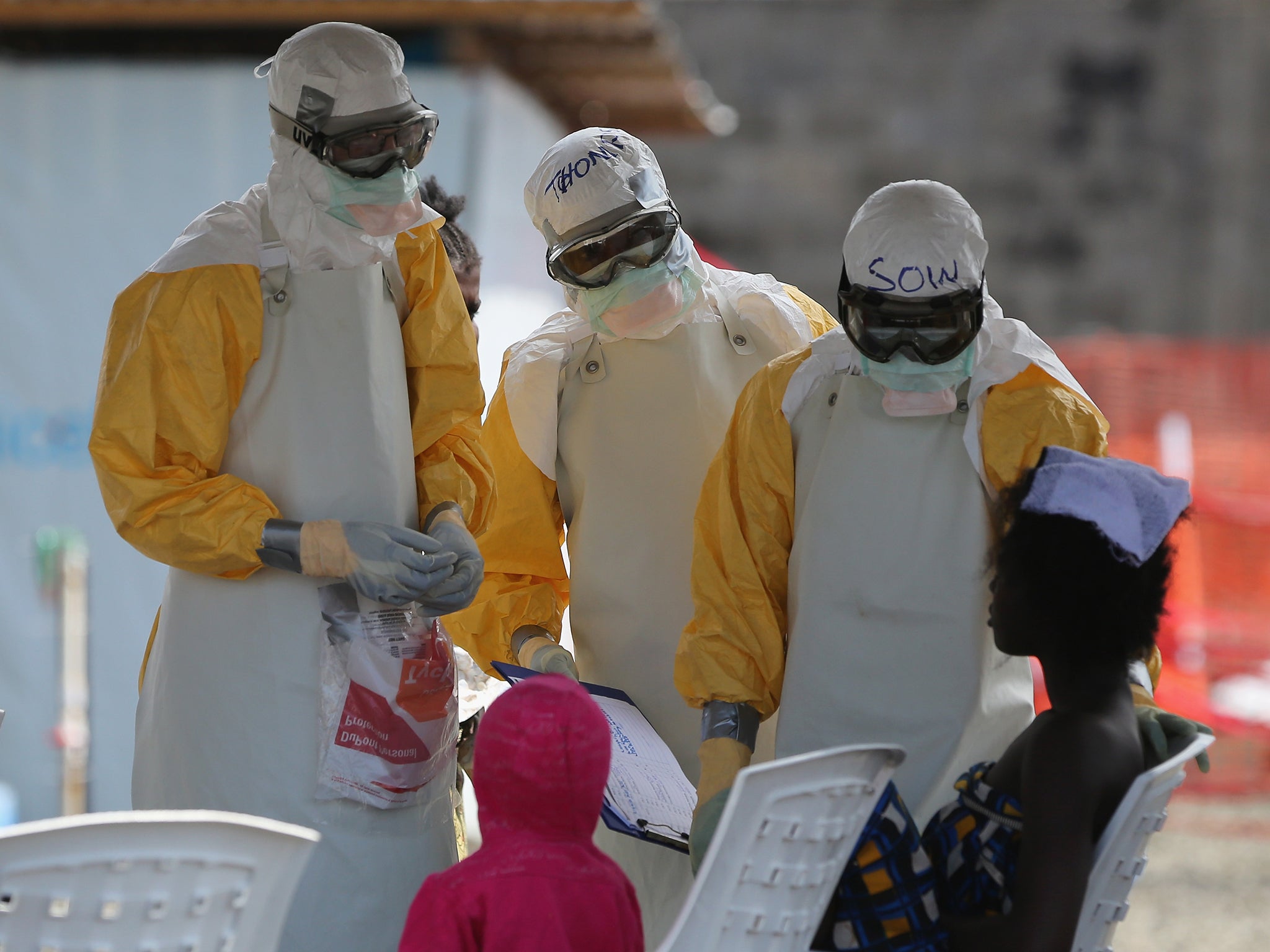Fear factor could hinder Liberia's Ebola trials
Volunteers are urged to try experimental new treatment - but public concern is running high

Your support helps us to tell the story
From reproductive rights to climate change to Big Tech, The Independent is on the ground when the story is developing. Whether it's investigating the financials of Elon Musk's pro-Trump PAC or producing our latest documentary, 'The A Word', which shines a light on the American women fighting for reproductive rights, we know how important it is to parse out the facts from the messaging.
At such a critical moment in US history, we need reporters on the ground. Your donation allows us to keep sending journalists to speak to both sides of the story.
The Independent is trusted by Americans across the entire political spectrum. And unlike many other quality news outlets, we choose not to lock Americans out of our reporting and analysis with paywalls. We believe quality journalism should be available to everyone, paid for by those who can afford it.
Your support makes all the difference.With music, pomp and ceremony, the first large scale trial of an experimental Ebola vaccine was launched yesterday in Liberia, in the face of two major challenges.
The first is to find enough volunteers – 30,000 are being sought – willing to take the potentially preventative vaccine, which contains a gene from the virus that has terrorised the country and claimed thousands of lives.
The second is to obtain sufficient results to show whether it works in the face of the rapidly declining number of cases. The researchers will only be able to tell if the vaccine protects against Ebola if the disease is still about. Last week there were just eight cases in Liberia, compared with 300 a week last September.
Announcing the trial in the capital Monrovia on Sunday, Joseph Nyumah, the Liberian Vice-President, tried to combat fear of the vaccine by urging volunteers to “take courage” and come forward “because it is going to work”.
Yesterday, at Redemption Hospital, a former Ebola holding centre and one of the bases from which the trial is being run, performers sang lyrics explaining the purpose of the trial, and the US ambassador spoke in support, as part of a campaign to ease concerns.
In the early stages of the outbreak last year, rumours spread about the cause of the epidemic, which was variously attributed to witchcraft, a Western plot and a conspiracy by African governments said to have introduced the disease to extract multimillion pound payments in aid from the West. Families refused to take dying relatives to treatment centres as a result, fanning the flames of the epidemic.
It may prove difficult to overcome those fears, given that the vaccine contains a tiny part of the virus itself – despite reassurance from scientists that it cannot cause the disease.
While the experimental vaccine has been developed with unprecedented speed by GlaxoSmithKline, it may turn out to be not fast enough to get a firm result in this epidemic.
It was first tested on monkeys and shown to protect them from Ebola. Initial trials on healthy human volunteers also showed that the vaccine was safe and produced an immune response.
However, among 60 healthy volunteers tested in Oxford between 17 September and 18 November, the level of immunity generated over 28 days was not as great as had been hoped. Professor Jonathan Ball, a molecular virologist from the University of Nottingham, said it was “a tad disappointing” and less than that observed in the monkeys.
But he added: “We don’t fully understand what degree of immunity humans require in order to protect them from infection. That’s why clinical trials are important.”
A US study showed a stronger immune response, but that trial tested a significantly higher dose of the vaccine. It has also been tested in Switzerland and Mali.
The Liberian trial, run by the US National Institutes of Health, will include frontline health workers and members of burial teams, it is hoped, who are at high risk infection. Other vaccines are in development and awaiting trials.
More than 21,797 cases of Ebola and more than 8,600 deaths have been recorded since the current outbreak in West Africa began. Last week, fewer than 100 cases were recorded in the three main affected countries – Guinea, Sierra Leone and Liberia – the first time they had fallen so low since last June.
Jeremy Farrar, director of the Wellcome Trust, which has funded trials of the vaccine, said yesterday: “The international response that has got us to this point has been phenomenal. The WHO confirmed last week that infection rates continue to fall, which emphasises the need to complete these crucial trials as quickly as possible.”
Join our commenting forum
Join thought-provoking conversations, follow other Independent readers and see their replies
Comments